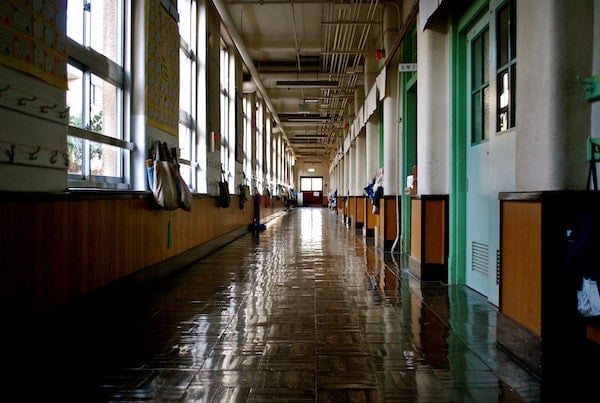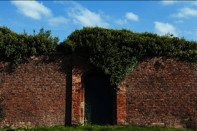Published on
Access to Learning Opportunities Throughout Life is a Social Justice Issue

My personal learning has taught me a lot about my great privilege which is, to this day, supported by and embedded into systemic discrimination and white privilege.
Stories from the Education Underground: The New Frontier for Learning and Work (Kendall hunt, August 2021) is filled with life stories very different from mine. These people were not born into privilege. They have lived on the other side of the opportunity gap and made the transition across. Some have all done well, while others have excelled. However, millions of others just like them have been frustrated and limited by the life circumstances they were born into.
So, before I interviewed other people about their life stories, I thought I ought to interview myself and briefly tell my own. In contrast to their life journeys, privilege launched mine and has protected me throughout my life in situations where others would probably have been left by the roadside. But my personal learning was aided and abetted by privilege and access to college. If the practice of justice rides on the shoulders of respect, then I have received both. But this should also be the case for millions of others as well.
Privilege and its first cousin, a society in which opportunity is segregated by income and race, may be contrasted with the lives of others—low-income people, people of color, women and the LGBTQ community. These others, including white men and women shackled by poverty and a lack of education, are often referred to as under-privileged. In reality, they have been denied the fundamental characteristics of privilege: being given the benefit of the doubt, having their life experience respected by society at large and gaining access to opportunity through networks of friends and associates.
Millions of people simply cannot adapt to the traditional collegiate model and its assumptions financially, culturally, emotionally or physically. In most cases, this is not a function of intelligence or native talent; life circumstances simply get in the way. As a result, the only option they have to employ their talent and acquire knowledge is through personal and experiential learning, including non-collegiate training. But when there is no credit given for that learning, it generally does not lead to greater opportunities. These people are on the outside looking in—so close yet so far from realizing the opportunity they deserve.
But technology is changing the landscape of opportunity, sowing the seeds that can and will rectify this social justice issue. There truly is a new eco-system emerging with multiple variants creating pathways to opportunity that didn’t exist before, including:
- New college models: Online, hybrid, self-paced, community-based and others are the opening act in a play that will see significant diversification in the years ahead. See College Unbound, SV Academy, The Community College of Vermont and the University of Maryland Global Campus as examples.
- Workplace-based models: Some examples include Goodwill Industries, McDonald’s Archways to Opportunities, Walmart’s Live Better U and the Amazon Career Choice program.
- Bridging services: This model acts as a value-enhancing go-between, connecting colleges and universities, employers and individuals. Some examples include Guild, StraighterLine, Credly and College Promise.
- Validation of Personal Learning: There are institutions that give credit where credit is due. These include CAEL, StraighterLine’s “all you can eat” approach with on-demand testing, and institutional programs such as the ones at Western Governors University and the University of Maryland Global Campus.
- The GPS for Learning and Work: eMSI, BurningGlass, The Open Skills Network and Strada are just a few of the efforts underway to define and establish the GPS for learning and Work.
There are many other models and approaches employed, but these suggest some of the possibilities. And if we are going to level the playing field for opportunity, we need to promote these kinds of solutions, which will in turn promote equality and social justice through education.
It is hard for some people who have benefitted from white privilege to accept the fact that they have benefitted from something that, in their minds, doesn’t reflect them or their abilities. But here is the thing: White privilege, “the way things are”, is not personal. It is systemic, woven into the fabric of our society. And while a rising tide lifts all boats, white privilege lifts some far higher than others.
Privilege is largely about white men, those of us who benefit from its gifts. Let me be clear, privileged people are not bad people, per se. Many of us are kind and well-intentioned. Some work to improve the lives of others; some are caring and raise their children to be so as well, strive to be decent employers and community builders. And, yes, some are selfish and self-interested, looking for ways to bolster and fortify the privilege they were born with while working to actively deny others the same. But none of that is the point. Taken collectively, the impact of privilege, as things are currently structured, constitutes a control of opportunity for the majority born outside its warm embrace.
Frankly, I put myself in the former category of privileged men. I have worked throughout my life to improve the lives of others with the best intentions and to raise a beautiful, caring and committed family. I am married to a woman with a remarkable life story. But wherever I fit on that human scale, however I have behaved and whatever my intentions may have been, I was born into a vastly preferred situation, one in which the road ahead was paved and included comfort stops, off-ramps and bridges to get me over and around the hard times. Most other people experience life as a crap shoot of low income, poor health, housing insecurity, lack of educational opportunity and respect.
Let me be clear: I am not writing out of a sense of guilt for the privilege I was born with. I was damn lucky. I have tried to use my advantages toward social change and levelling the playing field throughout my life, creating innovative higher education models that serve previously under-served adults. I bypassed the “big money” for service, often on what were considered the margins of accepted practice at the time, but it was my choice to follow the path that I did. And the ability to have and control your own life choices is in and of itself an extraordinary expression of privilege.
I am writing because, after over 50 years as an adult in my privileged American world, I believe the control and definition of opportunity created by the privileged will ultimately destroy us if we do not understand and act on its destructive consequences. I am from Vermont and snow stories are part of my background, so here is my metaphor about the ultimate impact of privilege of democracy.
In Vermont, one of the things you learn about winter is that the salt used to de-ice the roads can accumulate on your car’s undercarriage, slowly rusting away the metal. You don’t see it or feel it until your bumper falls off. Privilege is a little bit like that salt, corroding the structure of democracy in largely unseen ways. It benefits the few and structurally deny most people opportunity, respect and security, all the while implicitly blaming them for the failure cast upon them. I don’t want America’s bumpers to fall off.
This opportunity chasm is not simply their problem, whoever they are. Yes, it happens to them, but it is our problem as a society. We all pay for it–personally, socially, ethically, morally and financially–on a daily basis. And ultimately, I fear our societal bumpers will fall off. So, I am hoping that the power of the stories of those marginalized will be better understood when seen through the lens of one who was not.
Please read Stories From the Education Underground: The New Frontier for Learning and Work and see what you think!
Disclaimer: Embedded links in articles don’t represent author endorsement, but aim to provide readers with additional context and service.
Author Perspective: Educator



